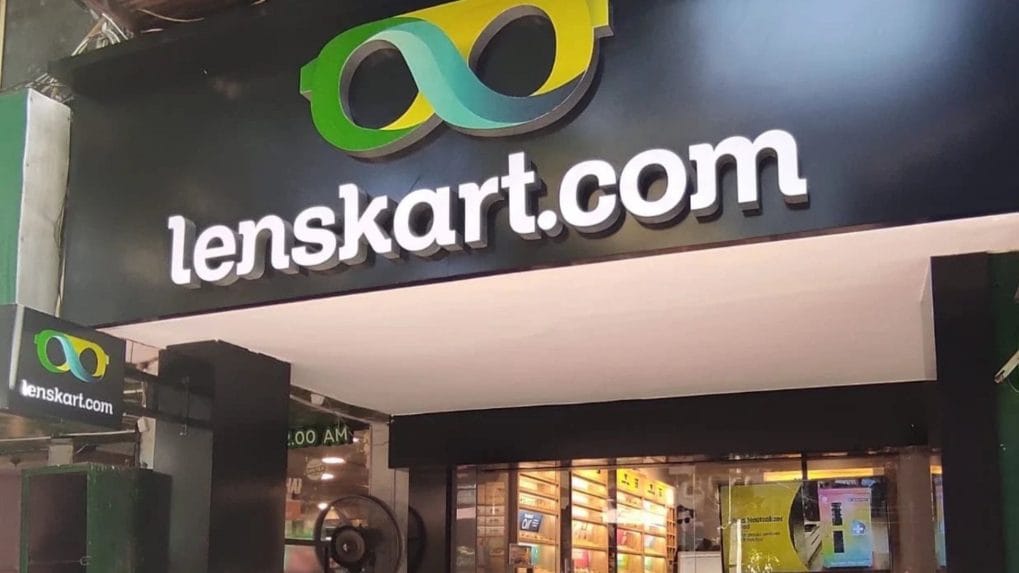Lenskart IPO: How founder Peyush Bansal 360-degree marketing turned eyewear into a lifestyle
Lenskart IPO: The eyewear giant has earmarked Rs 320 crore for brand-building.
ADVERTISEMENT
Eyewear major Lenskart Solutions opened subscriptions for its Rs 7,000-crore IPO on Friday, pricing shares between Rs 382 and Rs 402 apiece. The Gurugram-headquartered company is being viewed as one of the most compelling listings in recent times. In just over a decade, Lenskart has transformed India's eyewear industry--surpassing even Titan Eye+ on key metrics such as revenue, store footprint, and brand recall.
'Category disruptor'
Lenskart reported operating revenue of Rs 6,652 crore in FY25, far ahead of Titan EyeCare's Rs 796 crore. The platform runs 2,723 stores globally, including 2,067 in India, compared to Titan Eye+'s approximately 900 stores as of March 2025.
Lenskart's business also turned profitable-posting Rs 297.3 crore profit in FY25, following a loss in the previous financial year. Analysts credit Lenskart's momentum to its recurring revenue streams through contact lenses and accessories, deep R&D investments in futuristic eyewear, and a thriving omnichannel strategy.
'Marketing a core lever'
Beyond product and distribution, experts said that Lenskart's distinctive marketing playbook set it apart.
The company has earmarked Rs 320 crore for brand-building and Rs 591 crore for lease-related payments of company-owned stores (CoCo), as per the Draft Red Herring Prospectus (DRHP).
Azaz Motiwala, Founder and Chief Marketing Consultant at IKON Marketing Consultants, said Lenskart didn’t market eyewear. It marketed a modern way of seeing the world. The brand positioned itself at the intersection of fashion and functionality, appealing to younger, tech-savvy consumers who saw eyewear as part of their identity, he added.
Unlike competitor Titan Eye+, which focused on a dependable optical retailer focused on eye health and service quality, Lenskart infused youth culture into collections--ranging from Hello Kitty, Harry Potter to Hustlr.
"Their marketing made everyone feel youthful, classy, and trendy," said Professor Ashish Kaul.
Kaul added that Titan's scale also worked against category dominance. "Titan Eye+,part of the Tata Group, could not dominate the segment as conglomerates rarely excel across every category. However, a focused challenger can often outperform when a large group cannot concentrate its efforts," he added.
Harish Bijoor, brand guru and founder of Harish Bijoor Consults Inc., told Storyboard18 that even though the company is highly digitally-driven, it has always focused on being present in the market and closely connected with consumers, learning from their real buying experience.
"This segment has huge potential--because the more people there are, the more vision problems there will be," he said.
Experts also pointed to the brand's rapid omnichannel expansion as a key catalyst for growth.
"Lenskart's dense retail network in tier-2 and tier-3 towns has significantly strengthened its reach," said Neha Chopra, Leading Strategic Planning at ad agency Enormous.
According to Chopra, Lenskart's real marketing breakthrough lies in transforming eyewear from a prescription necessity into a wardrobe must-have.
Citing a brand campaign with actress Kiara Advani, she highlighted how it encouraged consumers to recycle and replenish their frames frequently--like updating outfits based in moods.
Another noticeable campaign featured founder Peyush Bansal alongside director-producer Karan Johar in a playful narrative around fair pricing. The message--that Lenskart delivers luxury-quality eyewear at fair, factory-value prices--resonated powerfully with buyers.
"The campaign effectively collapsed the premium gap in the consumer's minds," Chopra added.
Lenskart has said that its marketing strategy is focused on positioning, brand-building and awareness during new launches, festive periods, or category-education phases. Secondly, demand generation through sustained micro-marketing and performance-driven formats.
The company said that its strategy is to position itself as a customer-centric and innovative eyewear brand, focusing on strengthening domestic and international market share as well as enhancing customer loyalty and retention through targeted marketing and service initiatives.
Looking beyond branding, the growth potential in India's eyewear market is considerable. India's spectacles market--valued at US$4 billion (2024)--is expected to grow at 11-12% CAGR over the next five years. The luxury/premium eyewear market could nearly double to US$1.7 billion by 2030, opening lucrative opportunities for brands like Lenskart.
Lenskart will debut on BSE and NSE, with November 10, 2025 as the tentative listing date.


